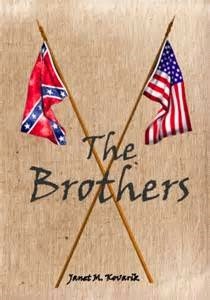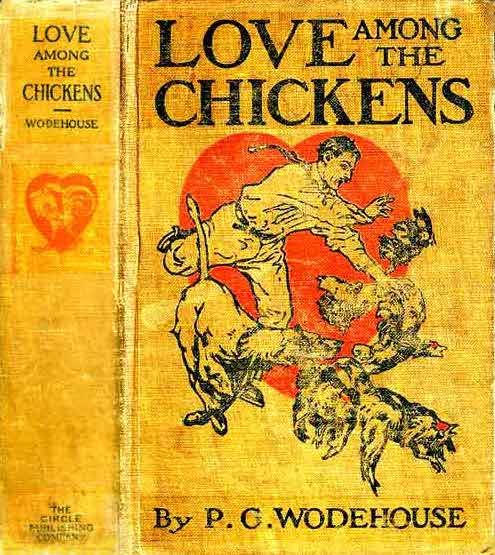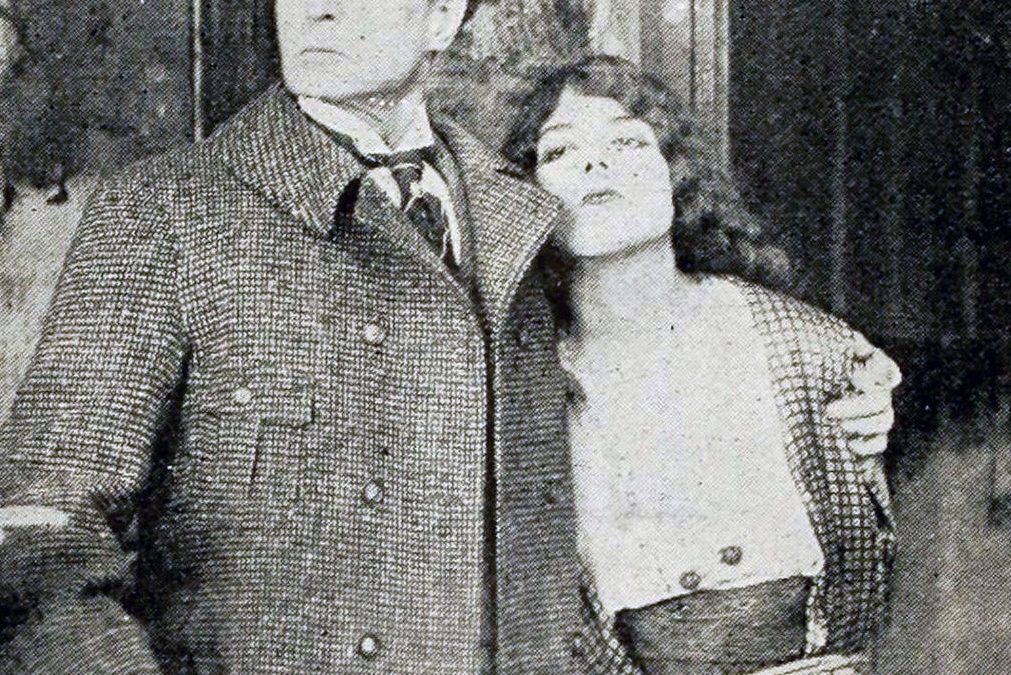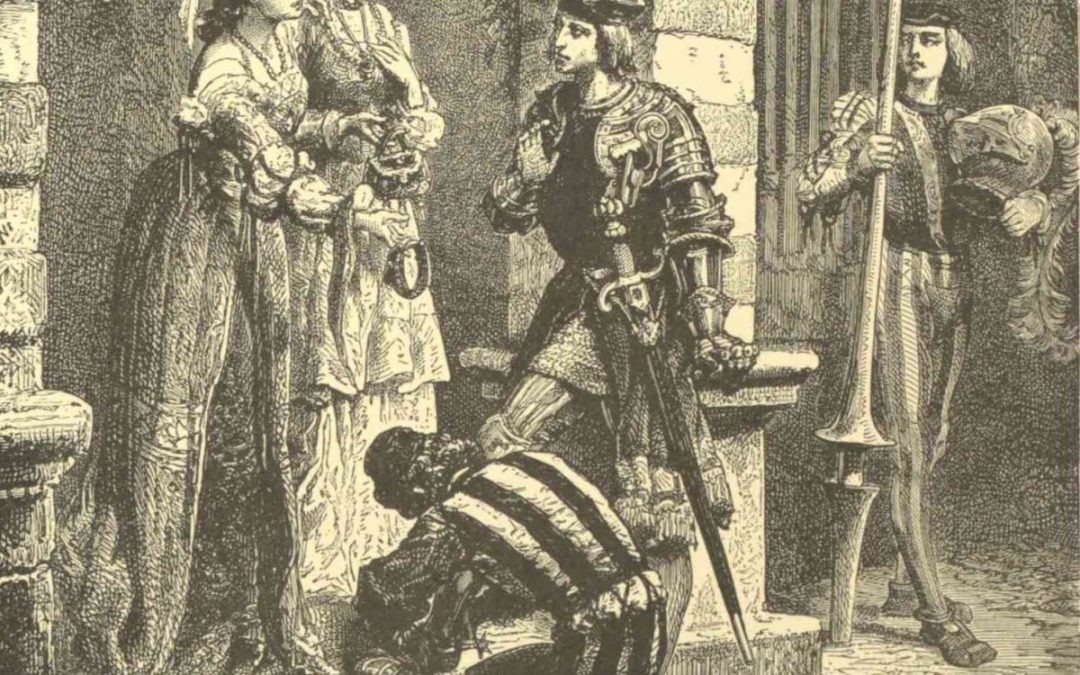
by Richard Subber | Jul 11, 2024 | American history, Book reviews, Books, History, Language
This is good storytelling
Book review:
The Brothers
Janet M. Kovarik
2014
If you’re a student of the Civil War, you’ll recognize the actual historical figures who are part of the story, and you’ll quickly feel comfortably familiar with Stu and Beau and Sarah and their families, because they embody some of the compelling human agents of the wartime drama.
These characters are three-dimensional. There is human urgency in their speech and actions. These are cerebral characters who are articulately reflective, thoughtful about their circumstances and their life journeys, and passionate about love and rectitude and their personal legacies and futures.
The Brothers is the first novel in The McCullough Saga. The twins, Beau and Stu, have explicitly distinct personalities but their lives have remarkably similar if unconventional trajectories. They are the central figures in a human story, on a human scale, with a conspicuously realistic historical setting. Storm Haven, their deep South plantation, is convincingly researched, as are the gritty battle scenes, the economics and logistics of the war, the arduous success of the Underground Railroad and the delights of antebellum southern cuisine.
The Brothers is a dialogue-rich offering of historical fiction. I’m a dialogue fan. This is good storytelling.
* * * * * *
Book review. Copyright © Richard Carl Subber 2024 All rights reserved.
The Unknown American Revolution (book review)
in the streets, says Gary Nash
Above all: Poems of dawn and more with 73 free verse poems,
and the rest of my poetry books are for sale on Amazon (paperback and Kindle)
and free in Kindle Unlimited, search Amazon for “Richard Carl Subber”
* * * * * *

by Richard Subber | Jul 7, 2024 | Book reviews, Books, Human Nature, Joys of reading, Language
Who doesn’t love Bertie Wooster?
I happened on a 1982 review of a biography of P. G. Wodehouse, and I can’t resist believing that the reviewer is a hatefully well-bred person.
Prof. Samuel Hynes very incautiously permits himself to label old P. G. as
” . . . the greatest trivial novelist in literary history . . .”
Egad.
Is he talking about Sir Pelham Grenville Wodehouse (1881-1975), the remarkably gabby genius who created Bertie Wooster and Jeeves?
Is he talking about the guy who makes us love the incurably erratic Wooster? who makes us worshipfully respect the very properly domineering Jeeves who can’t hurt a fly, knows nearly everything and saves Bertie’s bacon every time? who makes us stiffen, suppressing cries of delight, as we absorb the adjectival artistry of the whole bloody Wooster/Jeeves madhouse?
Hynes goes so far as to declare that Wodehouse “created a world without real problems and without human depths.” If you’ve read any of Wodehouse’s work, you know that ain’t true. There’s a bit of Bertie’s passion and despair in all of us, and Jeeves divinely makes it possible for everyone around him to be human.
There’s just one word too many in Hynes’ summary of Sir P. G. Wodehouse: “the greatest trivial novelist.”
I think you can guess which one it is.
If you want to, click here to read all of Hynes’ comments about Frances Donaldson’s 1982 biography, P. G. Wodehouse.
* * * * * *
Book review. Copyright © Richard Carl Subber 2024 All rights reserved.
Home Team: Poems About Baseball (book review)
Edwin Romond easily hits another homer…
Writing Rainbows: Poems for Grown-Ups with 59 free verse and haiku poems,
and the rest of my poetry books are for sale on Amazon (paperback and Kindle)
and free in Kindle Unlimited, search Amazon for “Richard Carl Subber”
* * * * * *

by Richard Subber | Jun 29, 2024 | Book reviews, Books, Joys of reading, Language
…the fastidiously chivalrous Sherlock Holmes…
Book review:
The Complete Sherlock Holmes Vol. II
by Sir Arthur Conan Doyle
Christopher Morley, Preface
New York: Doubleday & Company, Inc., 1953
821 pages
Sherlock Holmes never tires of being a marvel, and Doyle’s prose never ceases to entertain. One other thing: Jeremy Brett is my favorite TV Sherlock Holmes, you can pick your own favorite.
Every time I pick up this collection of Holmes adventures, I wish that I had picked up Volume I somewhere—I can’t remember how I acquired this slightly battered copy of Volume II, I’m doing my best to take care of it so I can pass it on when I find a young reader who wants it. My grandchildren are candidates.
I certainly won’t entertain the conceit of naming one of the Holmes stories as “my favorite” because there are too many utterly delectable candidates. Some I like more than others: “Three Pips” comes to mind.
In this Complete Sherlock Holmes I decided to re-read “The Adventure of the Second Stain.” It offers a typical Holmesian maze of fact, conjecture, and potential suspicion. In that context, it’s straightforward enough, and it’s a brisk story with appealing turns. I’m drawn to the final paragraphs which reveal a fastidiously chivalrous element of Holmes’ persona, in his solicitous treatment of Lady Hilda Trelawney Hope. Holmes meant it, twice over, when he said “I am sorry for you, Lady Hilda. I have done my best for you.”
You can read all about it.
* * * * * *
Book review. Copyright © Richard Carl Subber 2024 All rights reserved.
Book review: To Serve Them All My Days
by R. F. Delderfield
A beloved teacher,
I think you know this story…
Seeing far: Selected poems with 47 free verse and haiku poems,
and the rest of my poetry books are for sale on Amazon (paperback and Kindle)
and free in Kindle Unlimited, search Amazon for “Richard Carl Subber”
* * * * * *

by Richard Subber | Jun 25, 2024 | Book reviews, Books, Human Nature, Joys of reading, Language
the good folks prevail
Book review:
Saint Martin’s Summer
by Rafael Sabatini (1875-1950)
Pinnacle Press, 1909
270 pages
Saint Martin’s Summer, published in 1909, is a historical romance. This is Sabatini’s signature style. Think of it as a very high-toned beach book…
Spoiler alert: if you think you’re going to get a big helping of heaving bosoms and sweaty ravishment, maybe you should pick another book…
If you are familiar with Sabatini’s novels or his genre, you already know that knowing the ending—that is, anticipating with confidence how the good folks will prevail—is not necessarily an obstacle to full enjoyment.
Consider my most recent reading of Saint Martin’s Summer.
Grenache is the diffident, honorable cavalier sent by the Queen in Paris to contrive the rescue—effect the “enlargement,” do you love the language tones as I do?—of Valérie, the sweetest damsel you can imagine, from her desperate affairs of the heart in the godforsaken backwater of Dauphiny.
The designing Dowager, the feckless Seneschal, the callow son (Marius), and the worldly and unfaithful son (Florimond)—and believe it or not, too much money and power—round out the cast and the motive forces in Sabatini’s completely predictable and marvelously fulfilling mainstay of Romance literature.
Did I mention love? In Saint Martin’s Summer, you will relearn the potency of plighted troth, the lonely loyalty of unrequited love, the degradation of love in the minds of the loveless, the blossom of unexpected love in the heart of a forlorn girl, and the slowly rising heat of first love in the nobly bewildered and barren soul of an older man, who suddenly realizes that he can welcome a better life with an eager bride who is suddenly ready to be a woman.
I guess, technically, I had to mention “spoiler alert” at the beginning of this review. If you’ve read this far, I think you normally don’t pay attention to spoiler alerts, or, in this case, you didn’t mind.
I like to re-read Sabatini (e.g., Scaramouche) because I know how the stories are going to end,
I know what the lovers are going to say,
and I like the way Sabatini tells a story.
————————————————————-
Here’s my first take on Saint Martin’s Summer, after my first reading:
Jason Bourne would be bored in Dauphiny.
Dauphiny is a sleepy, rural French province, but there is occasional sword play, and some moat diving, so Bourne wouldn’t be bored all the way to tears…
Let’s just face up to it, in your classic Romantic novel about 18th century French dowager marquises and blundering bounders and dashing heroes and cherishable maidens and fat, simpering seneschals, you’re going to get more talk than titillation, and more argument than action. So be it.
Sabatini deftly creates his tale of principled, introspective people trying for success, both villainous and otherwise.
His characters have deep appeal—they’re always trying to do the right thing, or at least trying to do a bad thing the right way…e.g., Grenache knows he must save the girl, and he knows he will love her deeply…
They care deeply—about the ones they love, about their success in a milieu that maximizes opportunity for deception and ultimately minimizes the prospect of getting away with a betrayal or self-dealing or moral weakness.
Sabatini is a colorful storyteller,
and he tells a great story about things that count.
* * * * * *
Book review. Copyright © Richard Carl Subber 2024 All rights reserved.
Book review: An Empire on the Edge
by Nick Bunker
The British wanted to win
the Revolutionary War,
but they had good reasons
for not trying too hard…
As with another eye: Poems of exactitude with 55 free verse and haiku poems,
and the rest of my poetry books are for sale on Amazon (paperback and Kindle)
and free in Kindle Unlimited, search Amazon for “Richard Carl Subber”
* * * * * *

by Richard Subber | Jun 13, 2024 | Book reviews, Books, Language, Poetry, Reviews of other poets
dry tears, is all…
Book review:
All of Us: The Collected Poems
by Raymond Carver (1938-1988)
American poet, short story writer
386 pages
Repeat after me: à chacun son goût.
This is my first experience with Carver’s poetry.
I’ll say this right out: I do not disdain Carver’s poems, neither do I feel any urge to read them again.
He didn’t bother with the lyric voice. Don’t look for any sparks. Occasionally, one will feel moved to dry tears.
Carver offers a monochrome oeuvre. It’s prose in disguise. In some dusty corners Carver is included in the loosely defined group of poets who write so-called “dirty realism.” Think Bukowski (but Carver isn’t as strident as Bukowski, not nearly as imperious as Bukowski).
Carver’s poetic efforts are better than dirt, but what he writes really isn’t poetry in any flavor that appeals to me.
…à chacun son goût
* * * * * *
Book review. Copyright © Richard Carl Subber 2024 All rights reserved.
Book review: Shakespeare’s Wife
Germaine Greer went overboard a bit…
Writing Rainbows: Poems for Grown-Ups with 59 free verse and haiku poems,
and the rest of my poetry books are for sale on Amazon (paperback and Kindle)
and free in Kindle Unlimited, search Amazon for “Richard Carl Subber”
* * * * * *

by Richard Subber | Jun 9, 2024 | Book reviews, Books, Joys of reading, Language, Poetry, Reviews of other poets
Milking cows and dad music…
Book review:
A Sense of Wonder:
The World’s Best Writers
on the Sacred, the Profane, & the Ordinary
Edited by Brian James Patrick Doyle (1956-2017)
Maryknoll, NY: Orbis Books, 2016
192 pages
If Brian Doyle thinks you’re a good writer, ‘nuff said.
Most likely you’ll recognize at least a few names among Doyle’s collection of “the world’s best writers.”
In A Sense of Wonder, you can go straight to Mary Oliver (“Do You Think There Is Anything Not Attached by Its Unbreakable Cord to Everything Else”), or Pico Iyer (“A Chapel Is Where You Can Hear Something Beating Below Your Heart: I Came to the Chapel at the University as the Light Was Failing…”), or Paul Hawken (“Healing or Stealing? The Best Commencement Address Ever”), or, of course, Doyle himself (“The Late Mister Bin Laden: A Note”).
I especially like Connor Doe’s “Perfect Time: A Note on the Music of Being a Dad,” and if you’re not a dad, and you read it, you’ll start wishing right away that you could be one.
My choice for best “feel good” selection is
“An Elevator in Utah: On How Children Make Despair Look Stupid.”
Reading it creates the strangest urge to learn how to milk cows.
* * * * * *
Book review. Copyright © Richard Carl Subber 2024 All rights reserved.
Book review: Shantung Compound
They didn’t care much
about each other…
by Langdon Gilkey
My first name was rain: A dreamery of poems with 53 free verse and haiku poems,
and the rest of my poetry books are for sale on Amazon (paperback and Kindle)
and free in Kindle Unlimited, search Amazon for “Richard Carl Subber”
* * * * * *





